Figures from Teagasc that show sheep farmer incomes dropped by 81% to €7/ewe last year are unsustainable, the Irish Farmers' Association (IFA) has warned.
The Teagasc figure includes payments under the Sheep Welfare Scheme.
IFA president Tim Cullinan said that the projections for 2023 of continuing high input costs and difficult market conditions highlight the extent of the crisis in the sheep sector.
He made his comments following the IFA national sheep farmer meeting in Athlone on Monday night.
The IFA chief said that following the meeting, sheep farmers have left factories and Minister for Agriculture Charlie McConalogue in “no doubt as to the seriousness of the income situation in our second-largest farming sector”.
Cullinan highlighted that sheep farmers increased production by 10% to 75,000t last year, generating €476m in export value in the process, an increase of 17%.
He pointed out that at the same time, market failures have not led to the equivalent price increases for farmers on the ground.
“This is not sustainable in the vulnerable low-income sheep sector and must be addressed as a matter of urgency,” he said.
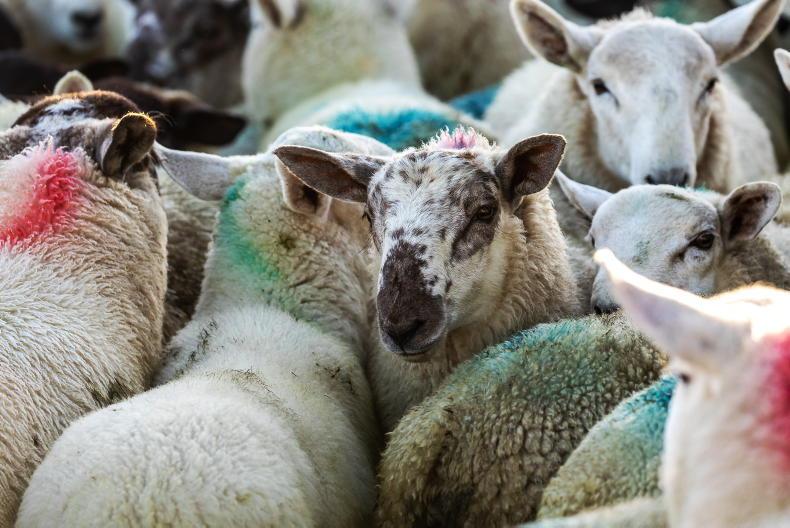
Sheep farmers must get more from the market place, the IFA has warned. \ Philip Doyle
Tim Cullinan said sheep farmers must get more from the market place and Bord Bia and that the factories have a critical role to play, particularly when there are prices of €8/kg and higher in the neighbouring French market and similarly high prices in the Spanish market of up to €7.50/kg.
Price tracker
IFA sheep chair Kevin Comiskey called on Bord Bia to provide an export benchmark price tracker for lamb, similar to those available for the beef sector.
He said that sheep farmers are entitled to know the full value of the market their lamb is being exported to and the value of these markets for farmgate prices.
“It’s critical returns from the market place are maximised, but this alone is not enough to provide economic viability and sustainability on our farms,” he said.
Comiskey called on greater direct support from the Department for sheep farmers.
“The €12/ewe [Sheep Improvement Scheme] must be paid in full and this must be supplemented by additional targeted support for farmers lambing ewes to bring payments to €30/ewe for the year ahead.
“Store finishers are a vital cog in the production system, particularly for hill sheep farmers, and these must be supported to remain active in the market place for the year ahead,” he said.
Brexit reserve
Cullinan also highlighted that Government is sitting on a Brexit Adjustment Reserve (BAR) fund of almost €1bn, which must be allocated before the end of this year.
“This fund must be directed towards our most vulnerable sheep, suckler and beef farmers to offset the impact of disruption in the UK market and provide income stability for these low-income sectors,” he said.
Read more
Sheep taskforce needed on lamb prices - INHFA
Sheep farmers should hold back lambs to drive up price – ICSA
Sheep price update: minor recovery as quotes increase by 10c/kg
Figures from Teagasc that show sheep farmer incomes dropped by 81% to €7/ewe last year are unsustainable, the Irish Farmers' Association (IFA) has warned.
The Teagasc figure includes payments under the Sheep Welfare Scheme.
IFA president Tim Cullinan said that the projections for 2023 of continuing high input costs and difficult market conditions highlight the extent of the crisis in the sheep sector.
He made his comments following the IFA national sheep farmer meeting in Athlone on Monday night.
The IFA chief said that following the meeting, sheep farmers have left factories and Minister for Agriculture Charlie McConalogue in “no doubt as to the seriousness of the income situation in our second-largest farming sector”.
Cullinan highlighted that sheep farmers increased production by 10% to 75,000t last year, generating €476m in export value in the process, an increase of 17%.
He pointed out that at the same time, market failures have not led to the equivalent price increases for farmers on the ground.
“This is not sustainable in the vulnerable low-income sheep sector and must be addressed as a matter of urgency,” he said.

Sheep farmers must get more from the market place, the IFA has warned. \ Philip Doyle
Tim Cullinan said sheep farmers must get more from the market place and Bord Bia and that the factories have a critical role to play, particularly when there are prices of €8/kg and higher in the neighbouring French market and similarly high prices in the Spanish market of up to €7.50/kg.
Price tracker
IFA sheep chair Kevin Comiskey called on Bord Bia to provide an export benchmark price tracker for lamb, similar to those available for the beef sector.
He said that sheep farmers are entitled to know the full value of the market their lamb is being exported to and the value of these markets for farmgate prices.
“It’s critical returns from the market place are maximised, but this alone is not enough to provide economic viability and sustainability on our farms,” he said.
Comiskey called on greater direct support from the Department for sheep farmers.
“The €12/ewe [Sheep Improvement Scheme] must be paid in full and this must be supplemented by additional targeted support for farmers lambing ewes to bring payments to €30/ewe for the year ahead.
“Store finishers are a vital cog in the production system, particularly for hill sheep farmers, and these must be supported to remain active in the market place for the year ahead,” he said.
Brexit reserve
Cullinan also highlighted that Government is sitting on a Brexit Adjustment Reserve (BAR) fund of almost €1bn, which must be allocated before the end of this year.
“This fund must be directed towards our most vulnerable sheep, suckler and beef farmers to offset the impact of disruption in the UK market and provide income stability for these low-income sectors,” he said.
Read more
Sheep taskforce needed on lamb prices - INHFA
Sheep farmers should hold back lambs to drive up price – ICSA
Sheep price update: minor recovery as quotes increase by 10c/kg






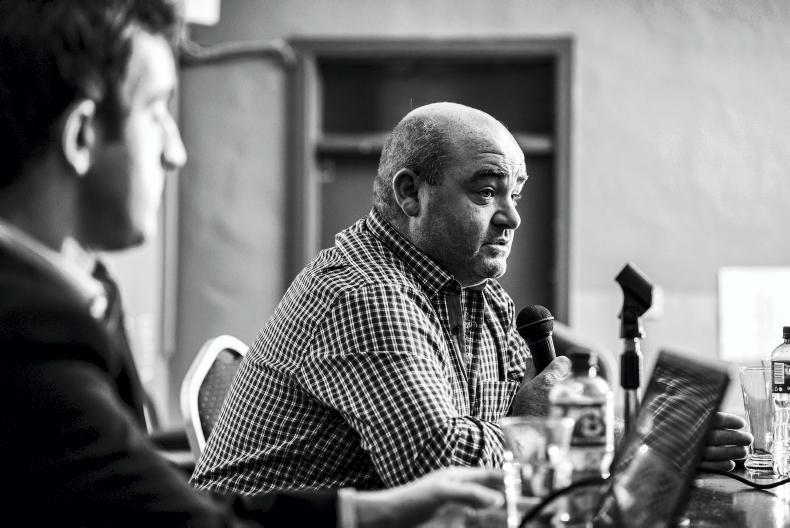
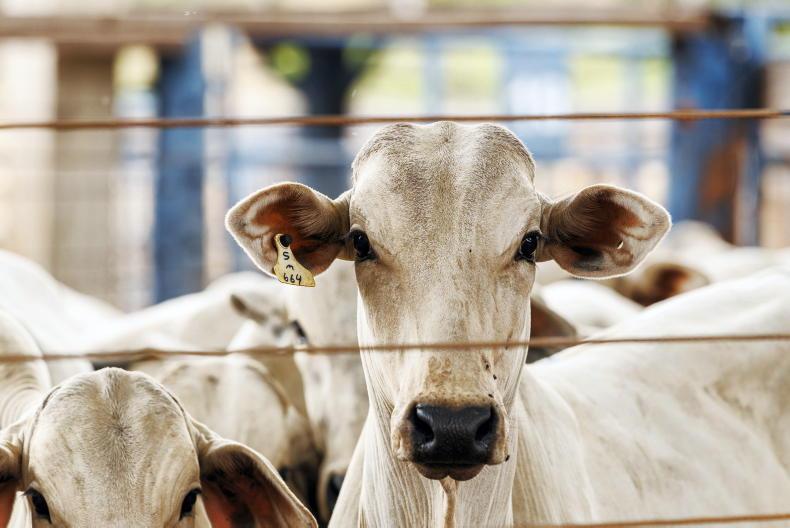
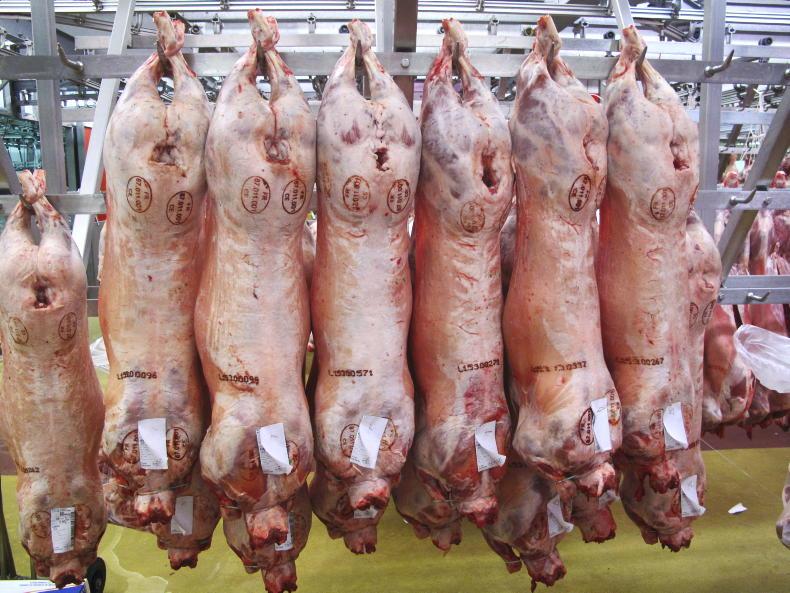
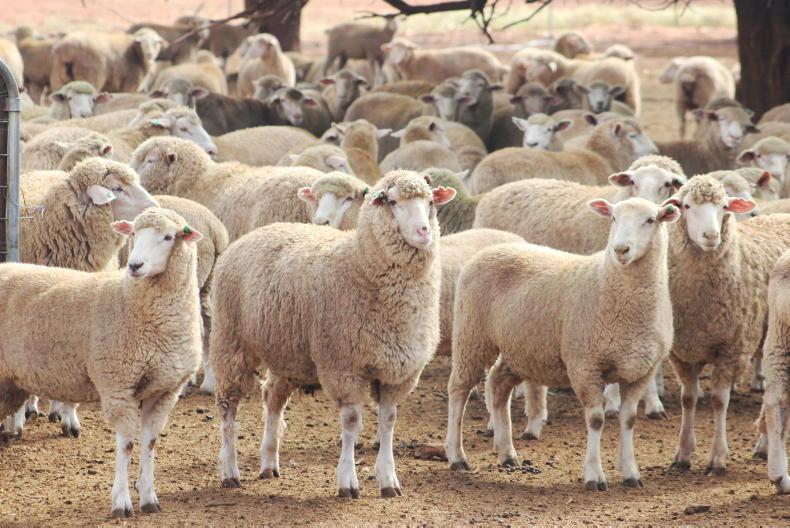
SHARING OPTIONS